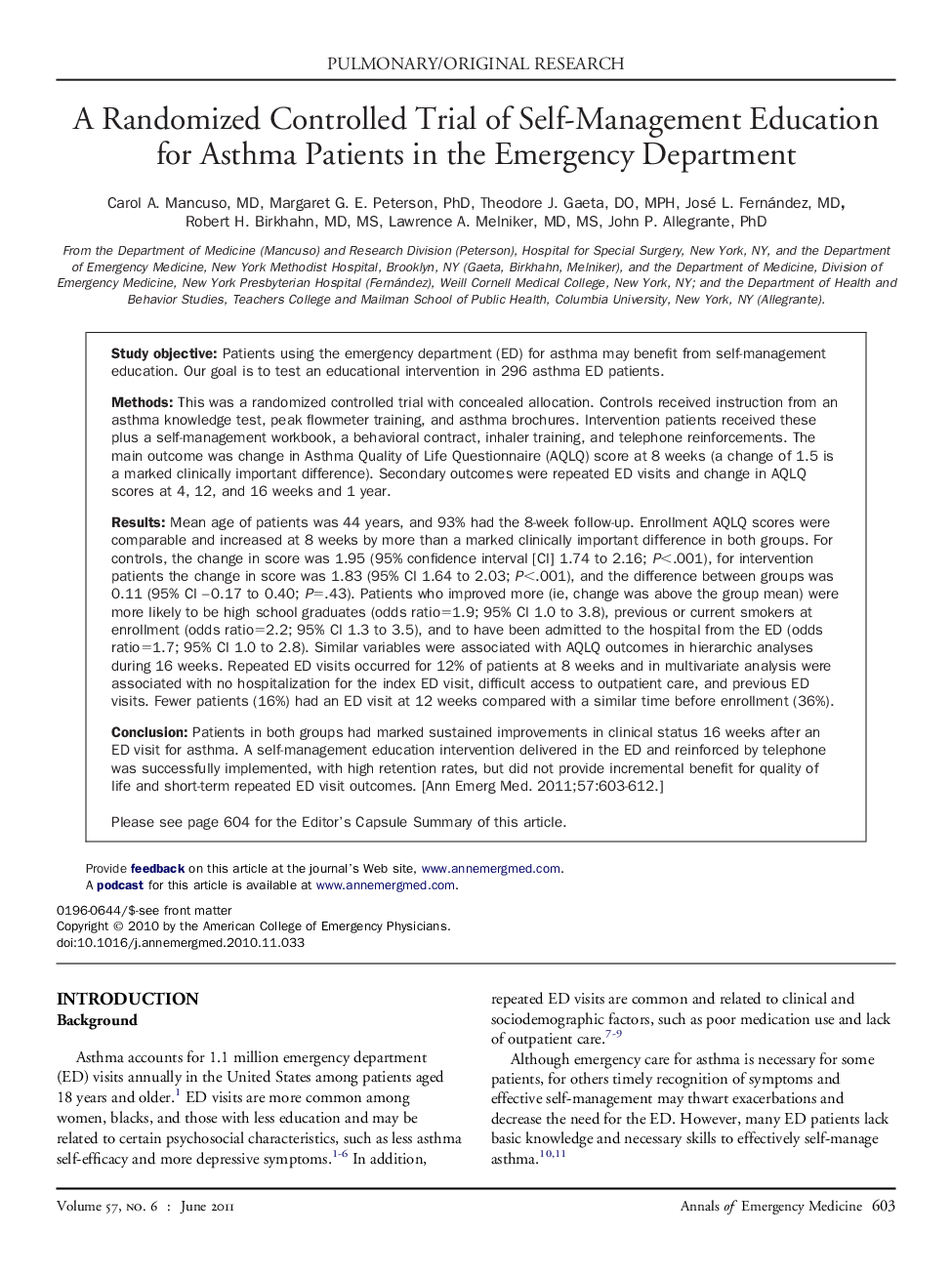| Article ID | Journal | Published Year | Pages | File Type |
|---|---|---|---|---|
| 3231159 | Annals of Emergency Medicine | 2011 | 10 Pages |
Study objectivePatients using the emergency department (ED) for asthma may benefit from self-management education. Our goal is to test an educational intervention in 296 asthma ED patients.MethodsThis was a randomized controlled trial with concealed allocation. Controls received instruction from an asthma knowledge test, peak flowmeter training, and asthma brochures. Intervention patients received these plus a self-management workbook, a behavioral contract, inhaler training, and telephone reinforcements. The main outcome was change in Asthma Quality of Life Questionnaire (AQLQ) score at 8 weeks (a change of 1.5 is a marked clinically important difference). Secondary outcomes were repeated ED visits and change in AQLQ scores at 4, 12, and 16 weeks and 1 year.ResultsMean age of patients was 44 years, and 93% had the 8-week follow-up. Enrollment AQLQ scores were comparable and increased at 8 weeks by more than a marked clinically important difference in both groups. For controls, the change in score was 1.95 (95% confidence interval [CI] 1.74 to 2.16; P<.001), for intervention patients the change in score was 1.83 (95% CI 1.64 to 2.03; P<.001), and the difference between groups was 0.11 (95% CI –0.17 to 0.40; P=.43). Patients who improved more (ie, change was above the group mean) were more likely to be high school graduates (odds ratio=1.9; 95% CI 1.0 to 3.8), previous or current smokers at enrollment (odds ratio=2.2; 95% CI 1.3 to 3.5), and to have been admitted to the hospital from the ED (odds ratio=1.7; 95% CI 1.0 to 2.8). Similar variables were associated with AQLQ outcomes in hierarchic analyses during 16 weeks. Repeated ED visits occurred for 12% of patients at 8 weeks and in multivariate analysis were associated with no hospitalization for the index ED visit, difficult access to outpatient care, and previous ED visits. Fewer patients (16%) had an ED visit at 12 weeks compared with a similar time before enrollment (36%).ConclusionPatients in both groups had marked sustained improvements in clinical status 16 weeks after an ED visit for asthma. A self-management education intervention delivered in the ED and reinforced by telephone was successfully implemented, with high retention rates, but did not provide incremental benefit for quality of life and short-term repeated ED visit outcomes.
